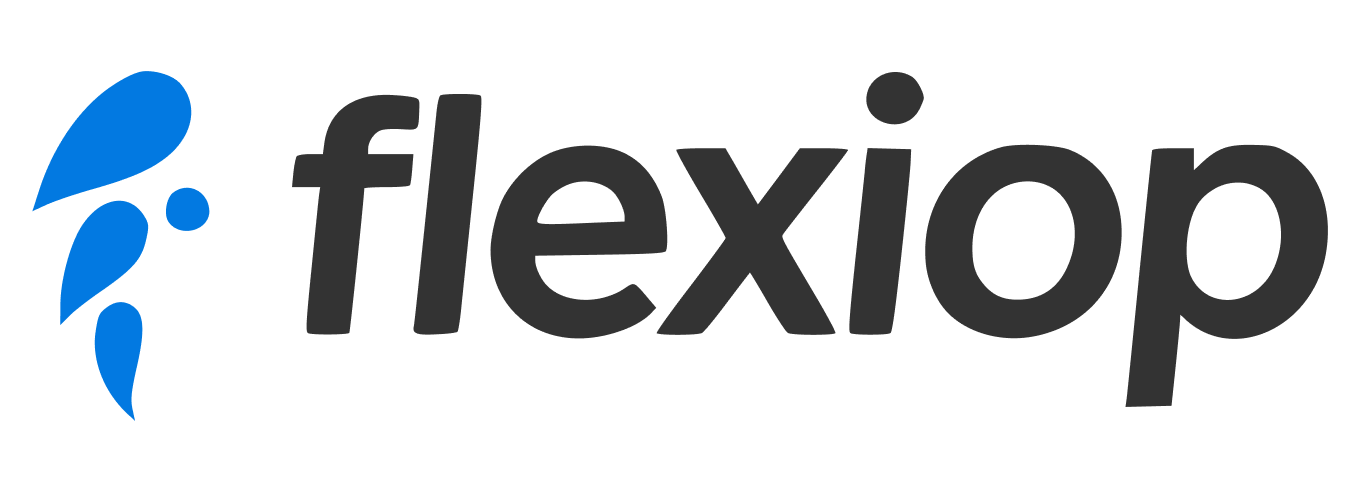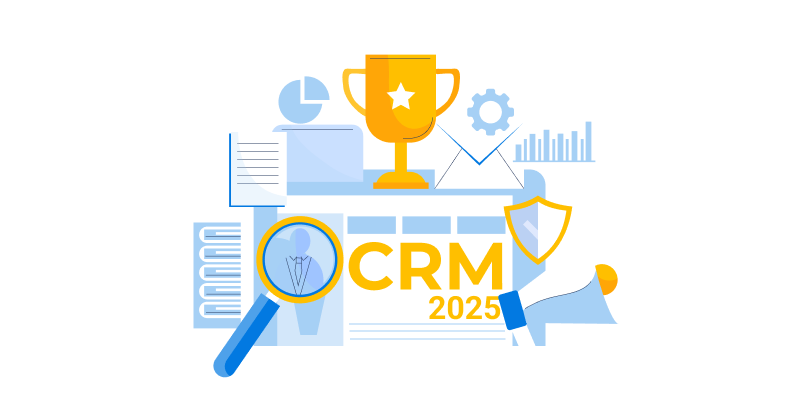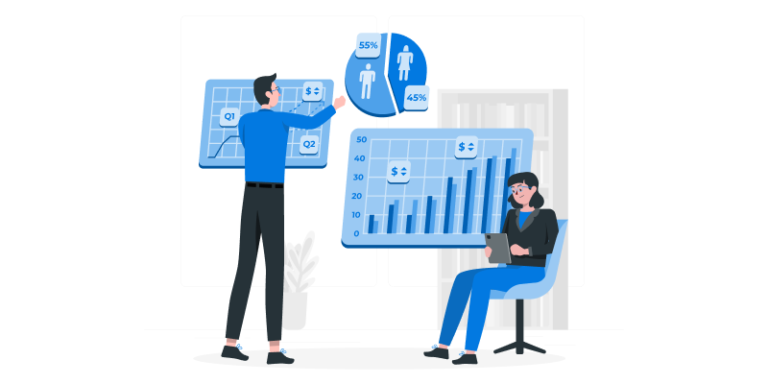In today’s competitive business environment, small businesses need efficient tools to manage customer relationships, streamline operations, and drive growth. Customer Relationship Management (CRM) systems have become essential in achieving these goals. With numerous options available, selecting the right CRM can be challenging. This guide explores the top five CRM systems for small businesses in 2025, highlighting their features, benefits, and considerations to help you make an informed decision.
Introduction
Managing customer relationships effectively is crucial for the success of any small business. A robust CRM system not only helps in organizing customer data but also enhances communication, improves sales processes, and boosts customer satisfaction. With advancements in technology, CRM systems have evolved to offer a wide range of features tailored to meet the unique needs of small businesses. In 2025, several CRM platforms stand out for their functionality, affordability, and user-friendliness.
Criteria for Selecting a CRM
When choosing a CRM system for your small business, consider the following factors:
- Ease of Use: The system should have an intuitive interface that requires minimal training.
- Customization: Ability to tailor the CRM to fit your specific business processes.
- Integration: Compatibility with existing tools and software used in your business.
- Scalability: The CRM should grow with your business, accommodating increasing data and users.
- Cost: Affordable pricing plans that offer value for money.
Evaluating CRM systems based on these criteria ensures that you select a platform that aligns with your business objectives and operational needs.
| Company | Price* | Website |
|---|---|---|
| Bigin by Zoho CRM | Free plan | Visit site |
| Salesforce Starter | $25/user/month | Visit site |
| Monday CRM | $12/user/month | Visit site |
| Pipedrive | $14/user/month | Visit site |
| Freshsales CRM | Free plan | Visit site |
*Pricing starts at and billed annually
Top 5 CRM Systems for Small Businesses in 2025
1. Bigin by Zoho CRM

Overview
Bigin by Zoho CRM is designed specifically for small businesses, offering a simplified yet powerful platform to manage customer relationships. It focuses on essential CRM functionalities without overwhelming users with unnecessary features.
Key Features
- Pipeline Management: Visualize and manage your sales pipeline effectively.
- Contact Management: Store and organize customer information in a centralized database.
- Email Integration: Sync emails to keep all communications in one place.
- Mobile Access: Access CRM data on-the-go with mobile applications.
Pros
- User-Friendly Interface: Easy to navigate, making it ideal for users with limited technical expertise.
- Affordable Pricing: Offers cost-effective plans suitable for small business budgets.
- Seamless Integration: Integrates smoothly with other Zoho applications and popular third-party tools.
Cons
- Limited Advanced Features: May lack some advanced functionalities required by growing businesses.
Pricing
- Free Plan: ₹0 for up to single user, includes basic CRM functionalities.
- Express: ₹400 per user per month (billed annually), adds AI-powered lead scoring and sales sequences.
- Premier: ₹720 per user per month (billed annually), offers advanced workflows and multiple sales pipelines.
- Bigin 360: ₹1,080 per user per month (billed annually), includes custom modules and dedicated account management.
User Feedback
Users appreciate Bigin’s simplicity and effectiveness in managing customer relationships without the complexity of larger CRM systems.
Conclusion
Bigin by Zoho CRM is an excellent choice for small businesses seeking a straightforward and affordable CRM solution to manage their customer interactions efficiently.
2. Salesforce Starter

Overview
Salesforce Starter is a CRM solution tailored for small businesses, providing a comprehensive set of tools to manage sales, customer service, and marketing efforts. It leverages Salesforce’s robust platform to deliver enterprise-level capabilities in a simplified package.
Key Features
- Lead and Opportunity Management: Track and nurture leads through the sales process.
- Customizable Dashboards: Visualize key metrics and performance indicators.
- Email Integration: Connect your email accounts for seamless communication.
- AppExchange Access: Extend functionality with a wide range of third-party applications.
Pros
- Scalability: Grows with your business, offering advanced features as needed.
- Comprehensive Support: Access to Salesforce’s extensive support resources and community.
- Integration Capabilities: Easily integrates with various business tools and applications.
Cons
- Learning Curve: May require time to fully understand and utilize all features.
Pricing
- Starter Suite: $25 per user per month (billed annually)
- Pro Suite: $100 per user per month (billed annually)
User Feedback
Users commend Salesforce Starter for its robust feature set and the ability to scale as their business grows.
Conclusion
Salesforce Starter is a powerful CRM solution for small businesses looking for a platform that can evolve with their needs, offering a wide array of features and integrations.
3. Monday CRM

Overview
Monday CRM is a customizable Work Operating System (Work OS) that offers robust CRM functionalities. It enables small businesses to manage customer relationships, sales pipelines, and team collaborations within a unified platform. Its flexibility allows teams to tailor workflows to their specific needs, enhancing productivity and efficiency.
Key Features
- Customizable Pipelines: Design sales pipelines that align with your business processes, ensuring seamless tracking of leads and deals.
- Automation: Automate repetitive tasks such as assigning leads, setting reminders, and updating statuses to save time and reduce manual errors.
- Centralized Communication: Integrate various communication channels to maintain all customer interactions in one place, facilitating better follow-ups and relationship management.
- Reporting and Dashboards: Create real-time dashboards to visualize sales performance, team activities, and other critical metrics, aiding in data-driven decision-making.
Pros
- Highly Customizable: Adapt the platform to fit various business needs without requiring extensive technical expertise.
- User-Friendly Interface: The intuitive design ensures that teams can quickly adopt and navigate the system, reducing onboarding time.
- Scalable: Suitable for growing businesses, with features that cater to both small teams and larger organizations.
Cons
- Cost Considerations: While feature-rich, some advanced functionalities are available only in higher-tier plans, which may be costly for very small businesses.
Pricing
Monday CRM offers several pricing plans to accommodate different business sizes and requirements:
- Basic: Starting at $12 per user per month (billed annually), suitable for small teams needing simple task management solutions.
- Standard: Starting at $17 per user per month (billed annually), includes additional features like timeline views and integrations.
- Pro: Starting at $28 per user per month (billed annually), offers advanced features such as time tracking and formula columns.
- Enterprise: Custom pricing for large organizations requiring enterprise-grade features and support.
A free trial is available, allowing businesses to explore the platform before committing.
User Feedback
Users commend Monday CRM for its adaptability and the ability to centralize various business operations into a single platform. The visual representation of workflows and the ease of collaboration are frequently highlighted as significant advantages.
Conclusion
Monday CRM stands out as a flexible and comprehensive CRM solution for small businesses in 2025. Its customizable nature, combined with robust features, makes it a valuable tool for managing customer relationships and enhancing team collaboration. However, businesses should carefully assess their specific needs and budget to select the plan that offers the most value.
4. Pipedrive CRM

Overview
Pipedrive is a sales-focused CRM designed to help small businesses manage leads and deals efficiently. With its intuitive interface and customizable pipelines, Pipedrive enables teams to focus on activities that drive sales.
Key Features
- Visual Sales Pipeline: Offers a clear view of ongoing deals, allowing teams to track progress and identify bottlenecks.
- Activity Management: Schedules and tracks activities to ensure timely follow-ups and task completion.
- Email Integration: Syncs with email providers to centralize communication within the CRM.
- Reporting and Analytics: Provides insights into sales performance through customizable reports and dashboards.
Pros
- User-Friendly Interface: Designed for ease of use, reducing the learning curve for new users.
- Customizable Pipelines: Allows businesses to tailor pipelines to their specific sales processes.
- Integration Capabilities: Connects with various third-party applications, enhancing functionality.
Cons
- Limited Advanced Features: Some advanced functionalities, like complex automation, may require higher-tier plans.
Pricing
Pipedrive offers five pricing plans to cater to different business needs:
- Essential: $14 per user per month (billed annually), suitable for basic sales management needs.
- Advanced: $24 per user per month (billed annually), includes email integration and automation features.
- Professional: $49 per user per month (billed annually), offers enhanced reporting and workflow automation.
- Power: $59 per user per month (billed annually), designed for scaling teams with advanced features.
- Enterprise: $79 per user per month (billed annually), provides tailored solutions for large organizations.
A 14-day free trial is available for businesses to evaluate the platform before committing.
User Feedback
Users commend Pipedrive for its straightforward setup and the ability to customize pipelines, making it easier to align the CRM with their sales processes.
Conclusion
Pipedrive is an excellent choice for small businesses seeking a CRM that emphasizes sales activities and pipeline management, offering a balance between functionality and affordability.
5. Freshsales CRM

Overview
Freshsales, a product of Freshworks, is an AI-powered CRM that caters to the needs of small and medium-sized businesses. It offers a comprehensive set of features designed to streamline sales processes and enhance customer engagement.
Key Features
- AI-Powered Lead Scoring: Utilizes artificial intelligence to prioritize leads based on their engagement and likelihood to convert.
- Built-In Communication Tools: Integrates email, phone, chat, and SMS within the CRM for seamless communication.
- Visual Sales Pipeline: Provides a drag-and-drop interface to manage deals across different stages.
- Workflow Automation: Automates repetitive tasks, allowing sales teams to focus on high-value activities.
Pros
- Comprehensive Feature Set: Combines multiple communication channels and AI capabilities in one platform.
- Scalability: Offers various pricing plans to accommodate business growth.
- User-Friendly Design: Features an intuitive interface that simplifies navigation and usage.
Cons
- Learning Curve for Advanced Features: Some users may require time to fully utilize the platform’s advanced functionalities.
Pricing
Freshsales provides several pricing plans to suit different business requirements:
- Free Plan: ₹0 for up to 3 users, includes basic CRM functionalities.
- Growth: ₹749 per user per month (billed annually), adds AI-powered lead scoring and sales sequences.
- Pro: ₹3,239 per user per month (billed annually), offers advanced workflows and multiple sales pipelines.
- Enterprise: ₹4,899 per user per month (billed annually), includes custom modules and dedicated account management.
A 21-day free trial is available for businesses to explore the platform’s capabilities.
User Feedback
Users appreciate Freshsales for its robust feature set and the integration of AI tools that enhance lead management and sales forecasting.
Conclusion
Freshsales CRM is a versatile solution for small businesses aiming to leverage AI capabilities to optimize their sales processes and improve customer relationships.
Conclusion
In conclusion, selecting the right CRM system is pivotal for small businesses aiming to enhance their customer relationship management and drive growth. The platforms discussed—Bigin by Zoho CRM, Salesforce Starter, Monday CRM, Pipedrive CRM, and Freshsales CRM—each offer unique features tailored to various business needs. By evaluating these options against your specific requirements and objectives, you can choose a CRM that aligns with your business goals and supports your path to success.
*All pricing are based in India as of Mar 5, 2025.




